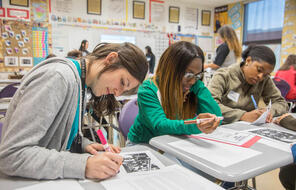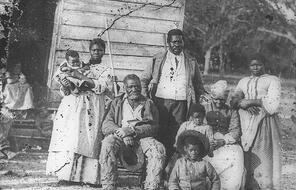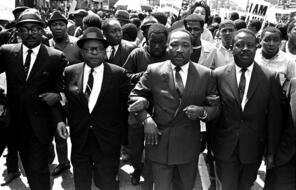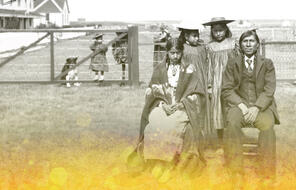Resource Library
Find compelling classroom resources, learn new teaching methods, meet standards, and make a difference in the lives of your students.
We are grateful to The Hammer Family Foundation for supporting the development of our on-demand learning and teaching resources.

Introducing Our US History Curriculum Collection
Draw from this flexible curriculum collection as you plan any middle or high school US history course. Featuring units, C3-style inquiries, and case studies, the collection will help you explore themes of democracy and freedom with your students throughout the year.
3349 Results
Resources for Civic Education in Massachusetts
Explore resources that meet the Massachusetts History and Social Science Framework.

Support for NYC DOE Implicit Bias Workshops
This collection features resources to further equity and justice in New York City public schools.

Developing Student Agency through History and Literature: Middle School Curriculum
Lead middle school students in an 18-week study of identity, membership and belonging, and civic participation through analysis of historical case studies and literature.

Civics for All Resources for NYC Public Schools
This collection features all the Facing History resources recommended in the New York Department of Education’s Civics for All curriculum.

Defying the Nazis: The Sharps’ War
These lesson plans use the Ken Burns’ documentary "Defying the Nazis: The Sharps’ War" to explore what motivated Waitstill and Martha Sharp to help refugees.

Facing Ferguson: News Literacy in a Digital Age
Help students become informed and effective civic participants in today's digital landscape. This unit is designed to develop students' critical thinking, news literacy, civic engagement, and social-emotional skills and competencies.

The Reconstruction Era 3-Week Unit
Teach a 3-week study of the Reconstruction era guided by the essential question "What can we learn from the history of Reconstruction as we work to strengthen democracy today?"

Memphis 1968
Lessons and resources help you explore the sanitation workers’ strike and other events that brought Dr. King to Memphis in the spring of 1968. This lesson is part of our partnership with the National Civil Rights Museum's MLK50 initiative.

Stolen Lives: The Indigenous Peoples of Canada and the Indian Residential Schools
Explore our online resource on the Indian Residential Schools and their long-lasting effects on Canada’s Indigenous Peoples.

Vies volées: Les Peuples Autochtones au Canada et le régime des pensionnats
Explorez nos ressources en ligne sur les pensionnats autochtones et leurs effets à long terme sur les Peuples Autochtones au Canada.

Americans and the Holocaust: The Refugee Crisis
Explore the motives, pressures, and fears that shaped Americans’ responses to Nazism and the humanitarian refugee crisis it provoked during the 1930s and 1940s.



